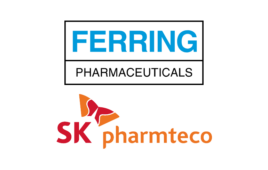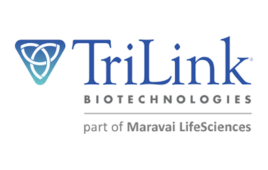PCI Synthesis’ journey: from discovering their niche as a company, to becoming the largest small molecule drug substance manufacturer in the New England area.
Operating two sites in the Greater Boston area, PCI Synthesis’ pharmaceutical development contract manufacturing organization (CMO) business has grown in recent years—aiding the company in its emergence as the largest small molecule drug substance manufacturer in the New England area. PCI Synthesis is a custom chemical manufacturer of new chemical entities (NCEs), generic active pharmaceutical ingredients (APIs), and other specialty chemical products.
Based in Massachusetts, the company’s headquarters and commercial/development cGMP manufacturing facilities are located in Newburyport, while its small-scale manufacturing and R&D facility is located in Devens.
“The company was originally founded in 1998,” said Ed Price, President and CEO of PCI Synthesis. “We really began as a small scale chemical manufacturer. Our niche at the time was tens of kilos—we were not a company who had big vessels, so we did not do large projects and we did not do very sophisticated, small-volume chemistry.
“When we started, during the first three or four years of the company, our customers were primarily big pharma companies who came to us because they didn’t want to develop these starting materials and building blocks internally, but there were no commercial manufacturers for these molecules.
“In 2005, there was a fire in our facility in Leominster, and I purchased a site in Newburyport in 2006. When I purchased the site in 2006, I basically had two companies I was trying to put together.”
From 2006 to 2009, the company continued to manufacture any existing projects.
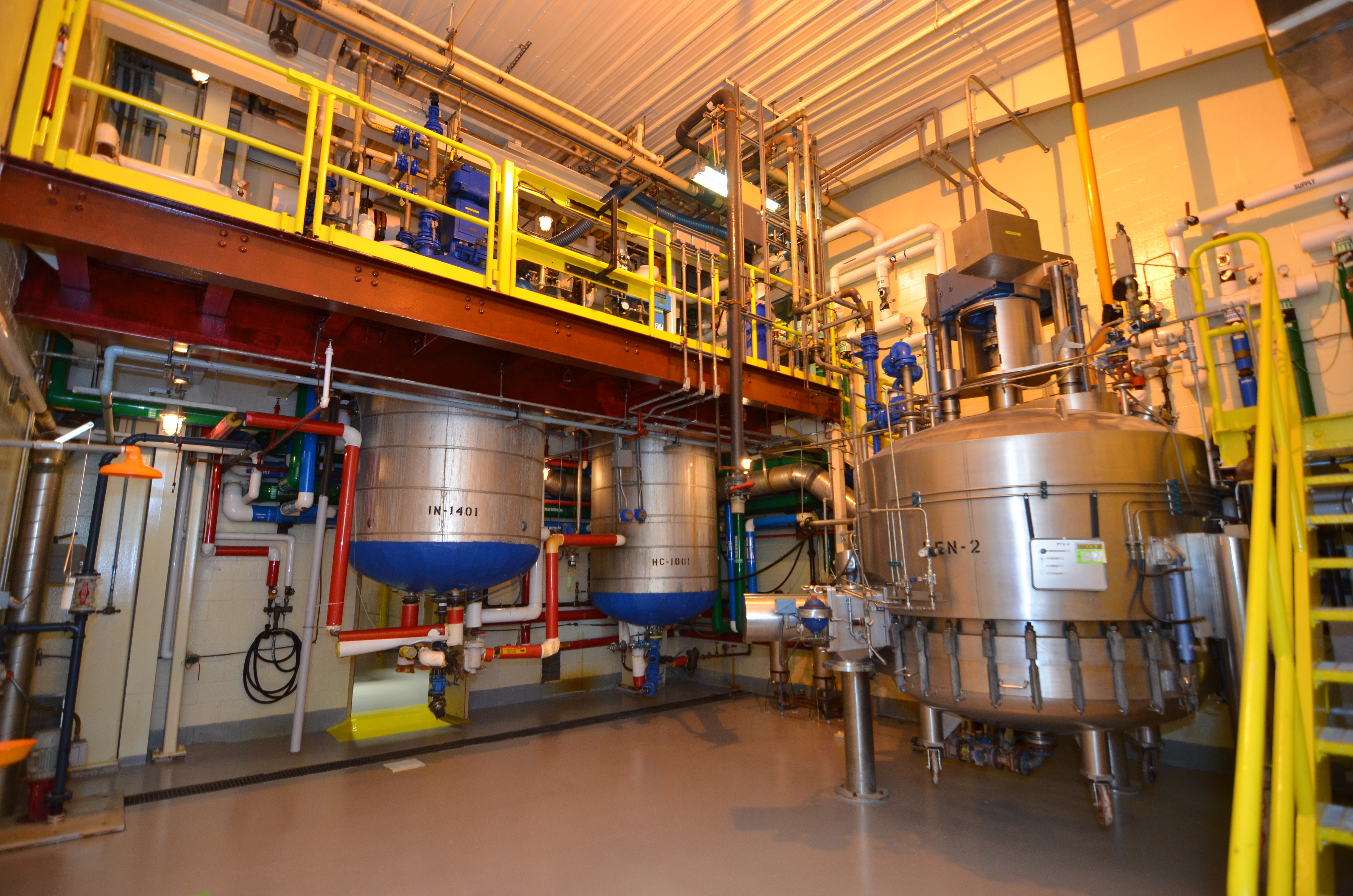
PCI Synthesis’ segregated commercial suite that processes batches of API’s up to 700 kgs.
A New Focus
In 2009, PCI Synthesis decided to gel the company’s strategy and shifted its focus to the following two verticals:
- Contract: Drug substance contract manufacturing for emerging pharmaceutical companies.
- Commercial: Commercially manufacture a portfolio of active ingredients with partners on a year in and year out basis.
According to Price, the reasoning behind the company’s choice to contract manufacture was primarily due to location—with dozens of entities in the Boston area requiring this expertise.
“All of that strategic thinking took place around 2009/2010,” said Price. “In order to execute on that game plan, I had to make some significant changes within the organization—primarily with the senior management team. I brought in experts from the industry: from manufacturing, R&D, analytical testing, and so forth, and revamped the management team by bringing people who were experienced in these different areas.”
Although the company has been around for a while, its current incarnation is really only about five years old.
“After the stock market crash of 2010, I watched the contract business dry up pretty aggressively,” said Price. “We were very lucky because we had a generic API that got approved that year—so, while other companies in my space were laying people off, we were actually growing a little bit and were much better off.
“I took that lesson—the lack of contract business in 2009 and 2010 and basically said, ‘You know, what we need to do is develop a portfolio of commercial products.’
“We’ll ride the roller coaster of the contract business up and down, but we’ll always have our commercial business.”
By 2015, the company’s new vision began manifesting results, with PCI Synthesis:
- Becoming the largest small molecule drug substance manufacturer in New England
- Being the most awarded drug substance manufacturer in North America by Life Science Leader magazine
- Having eight commercial products within a 15-product portfolio
- Having a very robust and vibrant contract business with small and emerging pharmaceutical companies
According to Price, 80 percent of their contract business is in the Boston area, while the other 20 percent is primarily in the San Francisco Bay area.
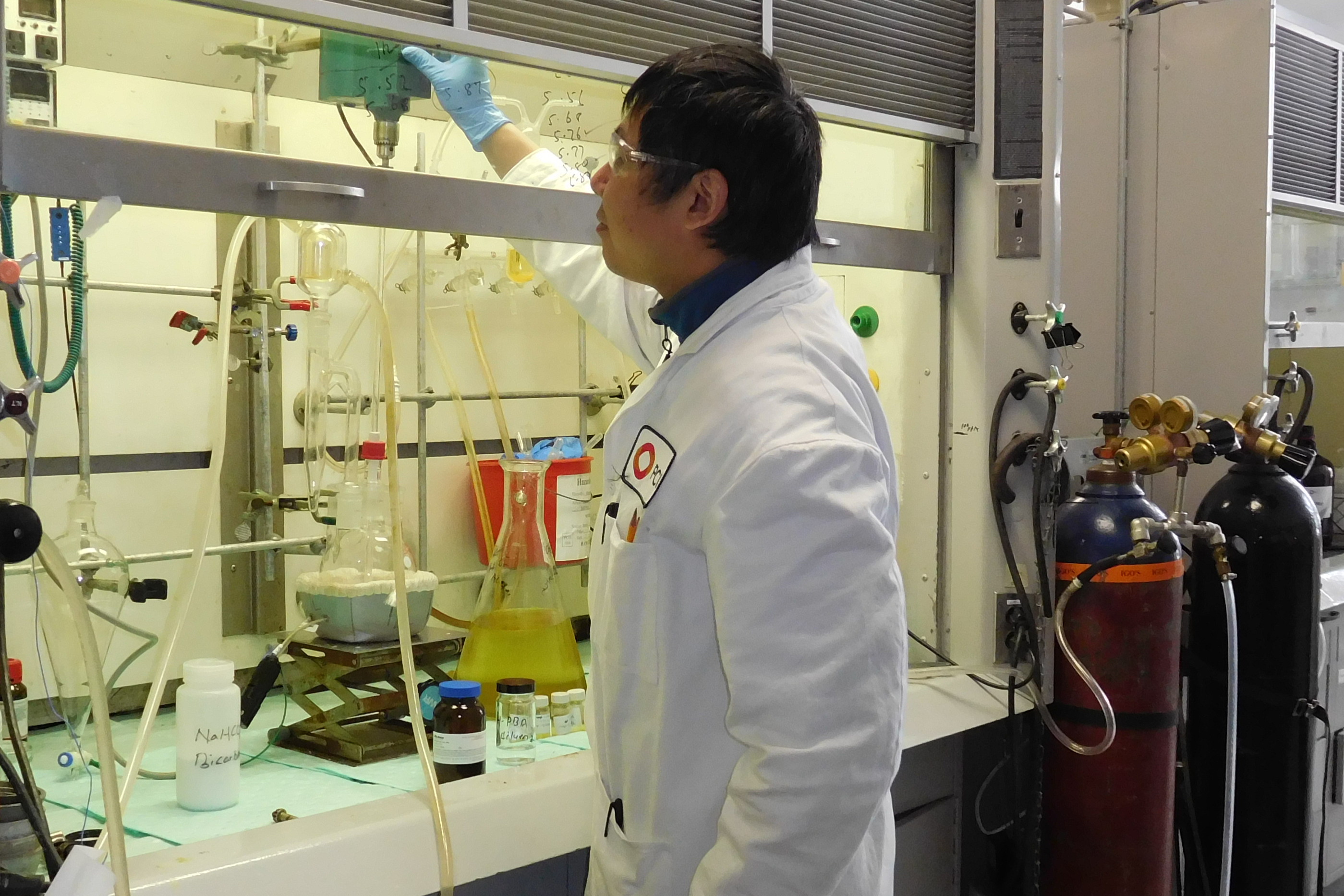
A PCI Synthesis scientist developing a synthesis process for a new chemical entity.
Pipeline & Capabilities
At any given time, PCI Synthesis is typically working on 20 to 24 different projects simultaneously.
Of the programs currently in their pipeline, the majority are generic actives.
“We’re one of the few companies in North America with large reactors, 2,000-gallon vessels, and very small equipment (kilo labs). Companies can start with us when they’re very early on (preclinical), and we can take them all the way through the clinic and perform commercial manufacturing as well,” said Price.
The company also works with a number of medical device and drug delivery companies, with a focus on advanced materials, which are polymeric in nature and need to be made cGMP. Some of these devices include implantable and biodegradable medical devices.
At present, the company’s 2009/2010 portfolio is now coming into fruition.
“Those decisions that were made in 2009/2010, that entire portfolio is now maturing in 2015/2016,” said Price. “We’re now enjoying one to two commercial approvals every year, and we’ll continue to enjoy one or two approvals for the foreseeable future because every year we also initiate one or two new projects that fall into that category.”
Their Process
“The process we go through to deliver material to our customers is pretty much the same across all the different industries and all the different types of products,” said Price.
According to Price, the four manufacturing steps they follow are:
- Process Optimization: Take the initial technology—whether developed internally by the customer or the CMO develops it for them—and become familiar with it at the lab scale. In addition, the CMO needs to be able to do it reproducibly.
- Initial Scale-up: Scaling up the process chemistry and making sure the impurities are under control.
- Kilo Lab Manufacturing: Producing a product on a kilo-scale and making sure everything learned on the previous phase transfers and occurs the same.
- cGMP Manufacturing: Producing a product either for clinical trials or registration batches.
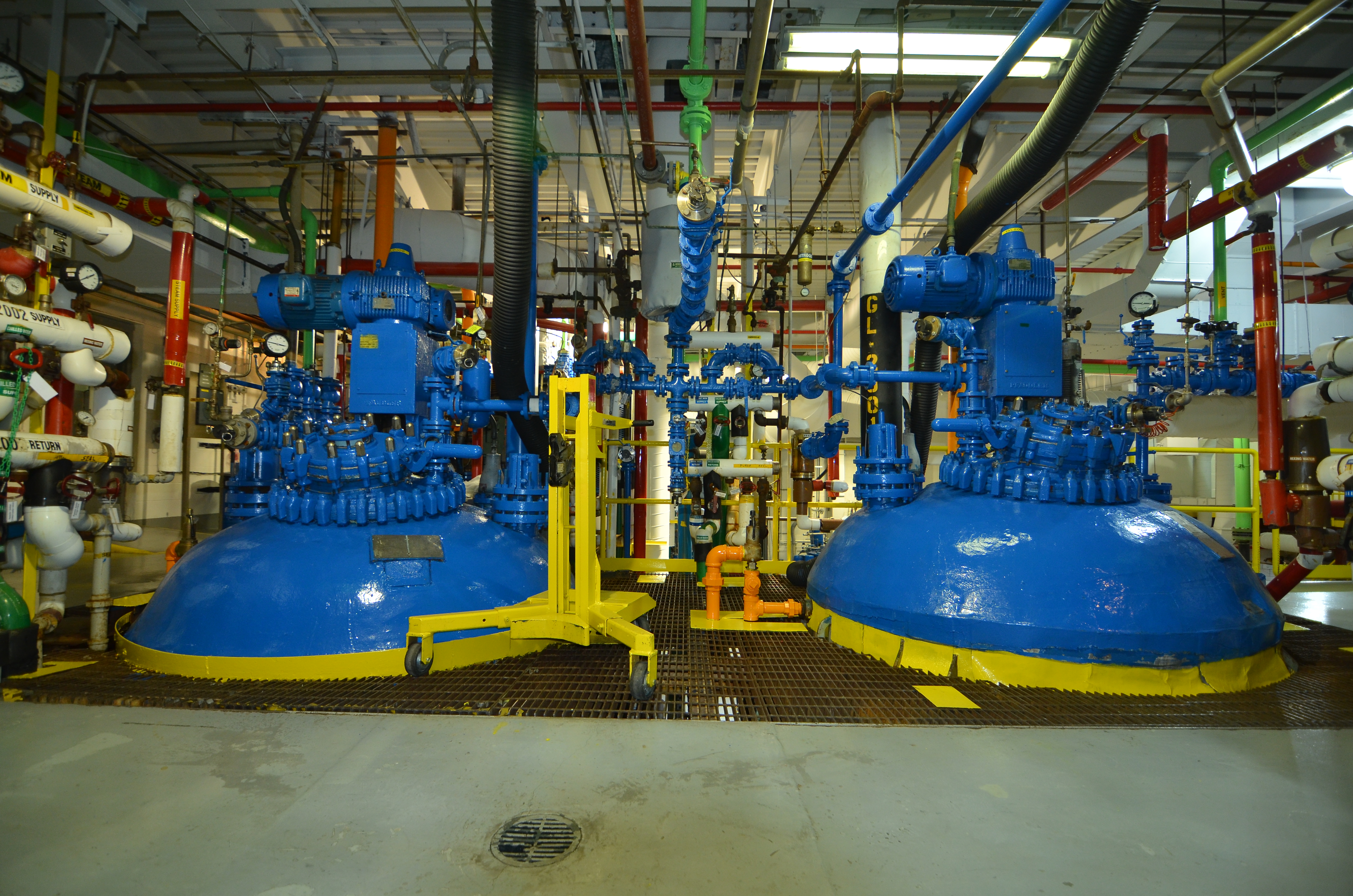
2000-gal, glass-lined commercial reactor train.
Clientele
As a whole, PCI Synthesis efficiently capitalizes on the opportunities nearest them.
“We work with a lot of small, emerging companies here in the Boston area,” said Price. “We compete with people all over the world as well as domestic players.
“The clinical projects we do, where we’re supplying early phase compounds for clinical trials—either pre-development or Phase I/II—the overwhelming majority of those project are right here locally. We do work with a lot of Massachusetts-based companies for both medical device and new chemical entities.
“My vision is that we want anyone who is developing a small molecule therapeutic in the Boston area to know who we are and that we can help them. They may decide not to work with us for one reason or another because we can’t do everything—we don’t have every technology under the sun—but they at least will know who we are and know what our capabilities are.”
In addition to their prominence in the Massachusetts area, the company also has a presence around the world—with customers in England, Finland, Sweden, Poland, Germany, as well as domestic customers across the U.S.
Strengths
“Our greatest strength as a company is the fact that we’re not a big company,” said Price. “We’re not a division of a big company; we’re not part of a large organization.”
According to Price, one of the things that customers like best about the company is that the team is responsive, manages everything closely, makes decisions quickly, and has the ability to be flexible—things that may be difficult to do in a larger, bureaucratic organization
“As a small management team, our focus is to do what we do better than anybody,” said Price.
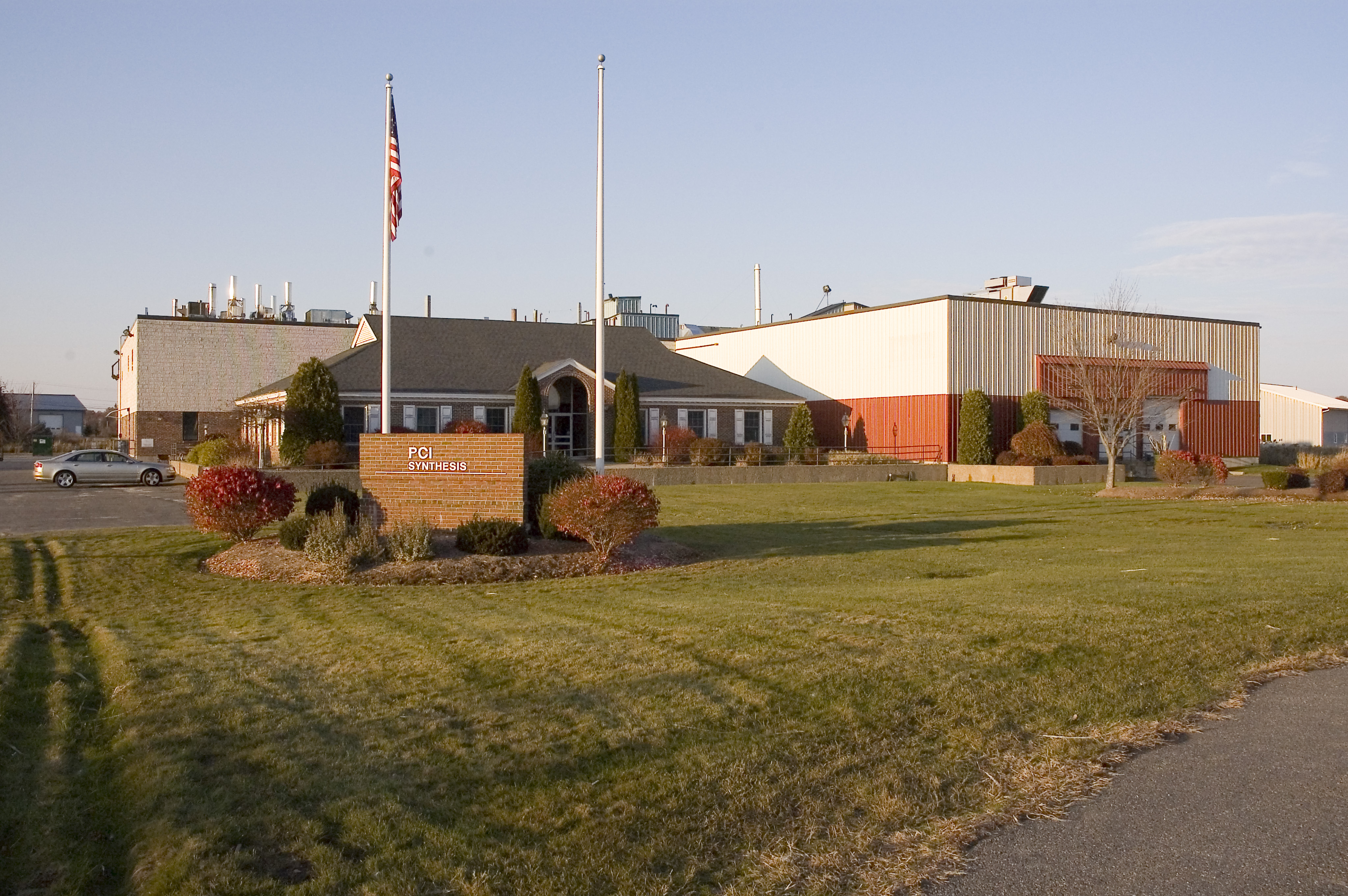
Looking Back to Look Forward
“I found this company when I was 28,” said Price. “I’ve been doing fine and specialty chemical manufacturing my whole career. And even after all of these years, I still get a kick out of the fact that we buy raw materials that has some value—but not a tremendous amount value—and by applying some technology to it and running it through our equipment, we create something that’s very valuable financially. And when we ship these products, we know it makes a difference with a lot of people.”
As a company, PCI Synthesis tracks the number of doses that they ship. Their corporate goal is to ship one billion doses within five years. Currently, they are up to 300,000 million shipped doses.
This article can also be found in the April 2016 edition.
Follow us on Twitter and Facebook for updates on the latest pharmaceutical and biopharmaceutical manufacturing news!

